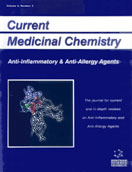Abstract
Allergic diseases such as asthma, atopic dermatitis, rhinitis and urticaria are immunological disorders, affecting more than 30% of the population in industrialized countries. Advances in the understanding of the molecular and immunological mechanisms of allergic inflammation have identified several new targets that might contribute to new therapies for allergic diseases in the future. Complexity of natural allergen extracts can be recreated using recombinant allergens and hypoallergenic derivates of these are being engineered to increase treatment efficacy and safety. In addition, the use of modern T cell and antigen-presenting cell modulating adjuvants conjugated to recombinant allergens are promising for the future of allergen-specific immunotherapy. T cells are important players in initiating and maintaining the allergic inflammation through release of cytokines, like IL-4, IL-5 and / or IL-13. The blockage of events that are not allergen-specific, such as T cell costimulation and downstream events dependent on IgE, cytokines and chemokines represent important strategies for the treatment of allergy. Nevertheless, all these approaches face the inherent difficulty of attempting to counteract an already established pathological immune response. In addition to the treatment of established allergy, it is essential to consider prophylactic approaches against allergy before initial sensitization has taken place. This article reviews the recent developments in allergen-specific immunotherapy as well as novel agents targeting the immune system in the treatment of allergic diseases.
Keywords: immunotherapy, vaccine development, allergy, tolerance, prophylactic approaches, ige, t cells, apoptosis, chemotaxis, histamine
 3
3

